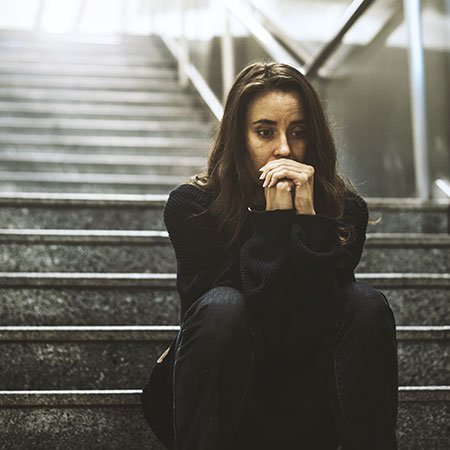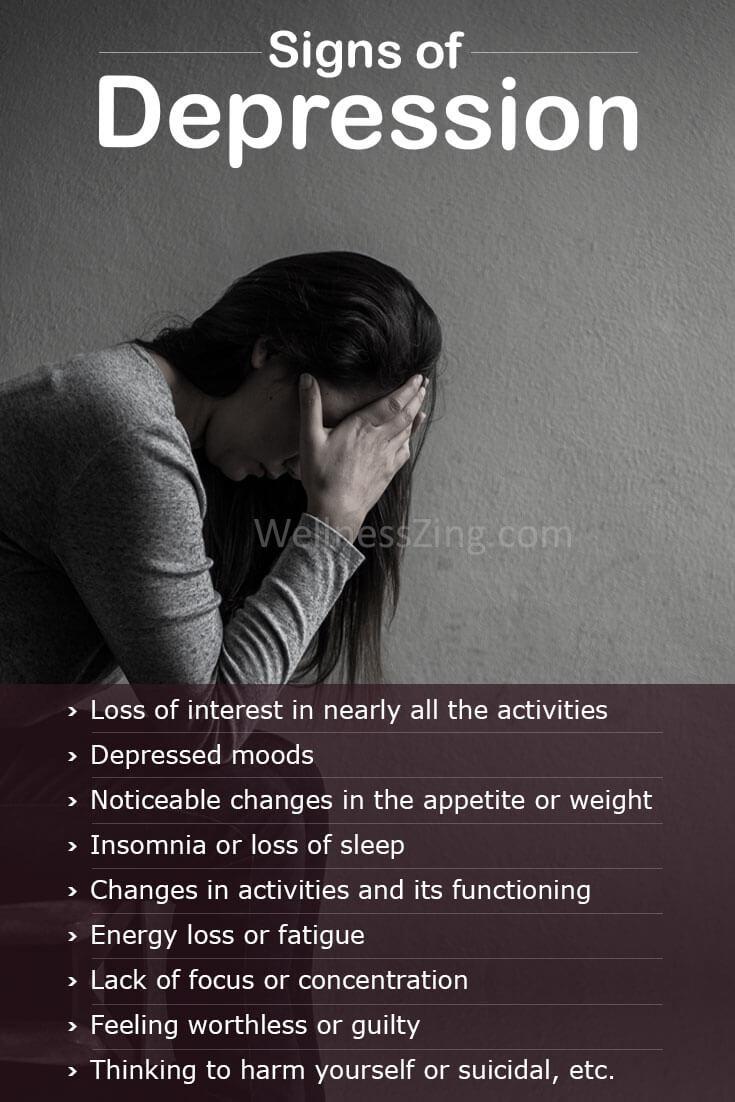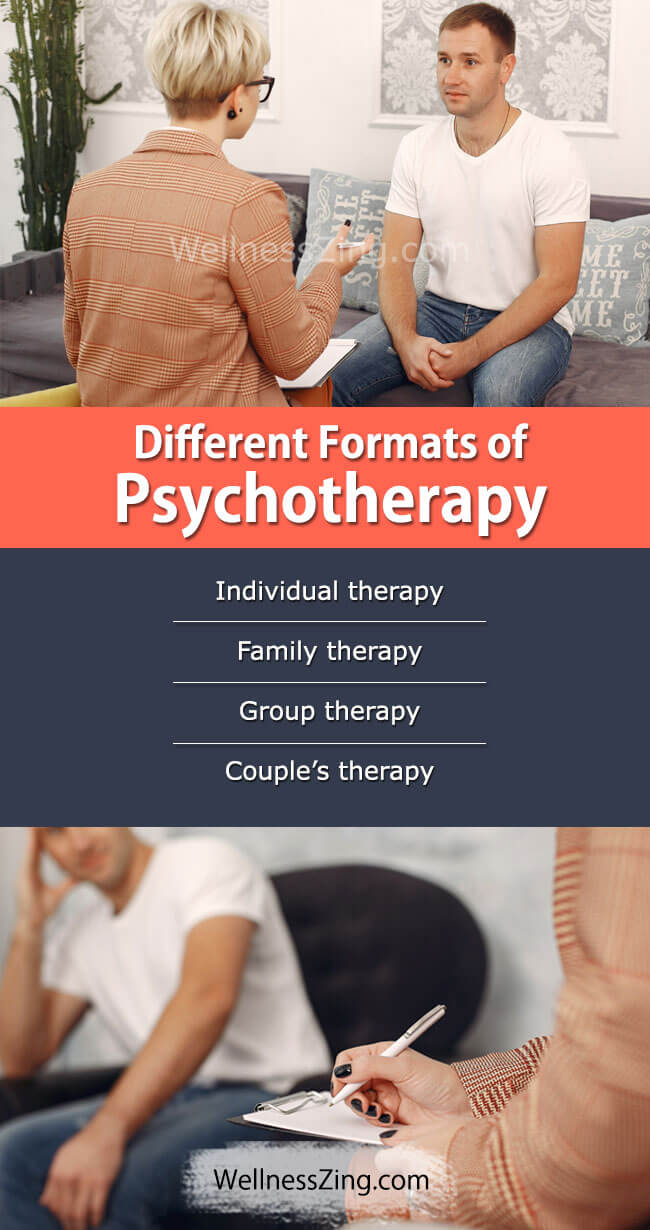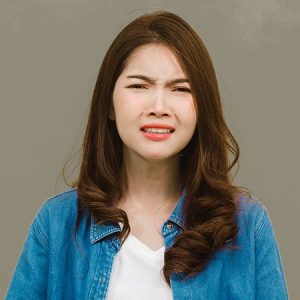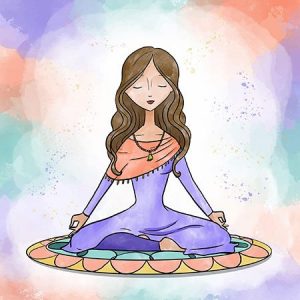Important Facts About Depression
- Depression is lightly taken by many people, however, it is an actual illness. It is an illness that matures from the biological and environmental issues that differ from one person to another.
- A human being suffering from depression suffers from garbling of thinking. Attempting suicide, harming oneself or someone else, etc. are some of the widely observed effects of depression.
- Another less-considered condition that is a part of depression is persistent irritability.
- Even if your close friend or family member is suffering from depression, there are high chances of you having depression too.
- Depression can be detected with the help of brain images as the brain circuits and structures work in a different way when anyone is depressed.
- It’s not necessary that a depressed person would look sad all day if he is suffering from depression. Again, depression is something additional than simply looking or feeling sad.
- Children also suffer from depression; however, the symptoms differ from adults. They enter the issue due to struggling for peer taking, bullying, stress levels, etc.
Depression – An Introduction
Depression is a widely heard word these days. Many misunderstand it as a weakness of a phase, laziness, or even a character. But truly speaking, it is among the serious mental and physical health issue which if ignored, can lead to dangerous results, including death. Another myth prevailing in the market is that depression is a condition when an individual suffers from the worst situation. But the fact is that it can occur due to minor issues too like losing a job or someone quite dear.
So, what actually is depression? Want a proper answer? Let’s check on it first for a clear understanding.
“Depression is a cruel disease that can affect anyone. It is very easy, once the symptoms begin, for a person to slide down the black hole of depression where the symptoms spiral and feed off of each other, increasing in severity.” – as explained by Michelle London from Weiss Memorial Hospital, Chicago.
In simple terms, depression, also known as depressive disorder, is both serious and common medical illness which affects negatively your feelings, your way of thinking, and your actions. It causes sadness or even the loss of interest in the activities you might have enjoyed at times. Depression brings along various physical and emotional issues which comes with a negative impact on the functioning of the individual both at home and at work.
Some of the commonly observed symptoms of depression in the list include:
- Loss of interest in nearly all the activities
- Depressed moods
- Noticeable changes in the appetite or weight
- Insomnia or loss of sleep
- Changes in activities and its functioning
- Energy loss of fatigue
- Lack of focus or concentration
- Feeling worthless or guilty
- Thinking to harm yourself or suicidal, etc.
There are various factors that lead to such mental condition which can be biological, genetic, environmental, and even social. People who are already suffering from cancer or serious heart conditions are more likely to suffer from depression.
What are the Possible Treatments for Depression?
Many people misconstrue depression as a weakness. But the fact is that it not something that easiest to come out of. When someone suffers from depression, proper professional treatment is required to deal with the situation. Along with professional treatment, the individual also needs proper care to make him feel better.
No doubt, the doctors are sure to prescribe the patients suffering from depression with antidepressant medicines for reducing the symptoms, there are other treatments too that would be helpful when combined with the medications. And psychological treatment is one of the effective treatments either combined with medications or even carried out alone for depression.
What are the different Psychological Treatments for Depression?
Psychological treatments also termed as talk therapy is an active treatment that is widely adopted by the doctors for reducing the symptoms of depression and fighting against it. The therapy includes a psychotherapist along with the individual grieving from depression in a room, basically known as the talking room, however, it is much more than simply a talking room. The psychotherapists are well-trained in different techniques that are implemented on the patient to help him recover from any kind of mental illness, make positive changes, and work on personal issues.
Psychotherapy is much helpful for depression as it goes to the roots of depression which helps in learning the reasons and fix it in different ways. And for this, there are different types of depression therapies out of which the right one is selected on the basis of the symptoms, therapy goals, and personal preferences.
Here are the different types of psychological treatments for treating depression.
1. Cognitive Behavioral Therapy
Also known as cognitive behavioral therapy, this therapy helps the patient in learning how to identify as well as manage the different negative thoughts to reduce the symptoms of depression. The therapy also helps in recognizing the patterns of behavior which holds an essential role in the treatment. Through this therapy, the therapists also come to know about the changes in the behavior and the reasons behind it, make changes in the inaccurate belief, and work on the unwanted negative thoughts. The therapy basically focuses on dealing with the behaviors as well as the negative patterns of thinking for a complete treatment to fight depression.
Once the identification process regarding the response is known, the therapist would work with the individual in learning new patterns for thinking and responding too. The sessions of CBT also include a portion that is to be done at home, like working on relaxation activities, maintaining a journal, working with worksheets for meeting a particular goal, and complete readings. CBT is a therapy that provides lasting results that prevent symptoms from reappearing in the future.
2. Cognitive Therapy
Cognitive Therapy is a therapy that basically reveals that the thoughts of an individual have a sure impact on the emotions too. And this therapy is helpful for the people who are suffering from depression due to negative thoughts. The negative thoughts of an individual have a great impact on the minds of the people which boosts depression. In this situation, it becomes harder for the individual to feel better or even good as the mind or brain is constantly stuck up in a bundle of negative ideas and thoughts. Through this therapy, people can work on identifying the negative thinking patterns which are most common. This is also termed as cognitive distortions.
When the patterns of negative thoughts are unstated, converting them into positive ones is carried out which helps in the improvement of the mood of the sufferer. This kind of therapy is basically either goal-oriented or short-term. Again, similar to Cognitive Behavioral Therapy, this therapy also comes with a homework part which is to be carried at home with the family members and friends. This therapy has basically provided with effective results between around 6 to 18 weeks.
3 Behavioral Therapy
Just as cognitive therapy focuses on the different negative thoughts coming in the mind of the sufferer, behavioral therapy focuses on the changes that are observed in the behavior. Such changes have a deep impact emotionally on the sufferer. The therapy doesn’t need any kind of changes in the attitude or the beliefs of the individual.
The treatment carried out in this therapy concentrates on focusing on different activities that are encouraging, satisfying, pleasant, rewarding, etc. The therapy or activity in this therapy aims to reverse the avoidance patterns, inactivity, and even withdrawal that take the depression to the next level or a worse situation. Behavioral therapy enhances the mood of the individual from the inside and improves his well-being through different activities.
4. Dialectical Behavior Therapy
Dialectical Behavior Therapy is one of the types of Cognitive Behavior Therapy. The main purpose of this therapy is to help depressed people learn or develop the skills that help in reducing the symptoms of depression like stress, improving the relations with other people, and regulating emotions. Through this type of psychological treatment, the individuals are incorporated with particular practices based on the traditions followed by the Buddhists.
The therapy is among the mindful practices that come with the utmost effective guidance on every situation the depressed person is going through. Through the therapy, the psychologist works on different aspects regarding the behavior and the different ways of tackling it through new skills. This makes it easier for the patient to handle the various challenging situations in their own way. Apart from depression, this treatment also works best for other mental illnesses too.
5. Interpersonal Therapy
Yes, poor support socially and interpersonal conflicts can also lead to depression. This kind of therapy not only includes the past social roles of the individual but the present social roles too along with interpersonal interactions. At the time of the treatment, the doctors or therapists basically select either 1 issue or 2 issues that are creating a problem in the life of the patient, currently and focuses on working on it.
Interpersonal therapy basically involves a brief examination of social relationships that are essential in their lives. The relationships here consider friends, partners, family, co-workers, etc. The basic goal of the therapy is to identify the relationship role that is important for life and also works on getting to different ways for resolving the conflicts that are already existing. With different scenarios, the therapists can work on improving communication which helps in building strong support socially.
6. Psychodynamic Therapy
Also known as psychoanalytic therapy, psychodynamic therapy is basically on an assumption that the individual is depressed due to an unresolved conflict or unconscious conflict from childhood. The main goal of this therapy is to become additionally aware of the emotional range which includes both troubling issues and contradictory issues. This therapy helps the patient in bearing with the feelings effectively and place them in a user standpoint.
Compared to the other types of therapies for depression, psychodynamic therapy comes with less focus and long-term benefits. The therapy is useful for looking for different connections from the experience in the past and working on how the events would impact the feelings connected with depression. The approach is also beneficial for building self-awareness and increase the capabilities emotionally.
Henceforth, these are some of the psychological treatments that are adopted by the psychotherapists for treating the depression depending on various factors.
What are the different formats of Psychotherapy?
Coming to the different formats of psychotherapy, there are different ways through which it can be delivered. For some treatments, it carried out by combining 2 or even more forms. Here are the different formats of psychotherapy.
1. Individual therapy
In this format, one-to-one modality is adopted where the sessions take place between the therapist and the patient. In such formats the complete attention of the therapist remains on the patient, however, it lacks the observation of the patient in family relationships or social relationships.
2. Family therapy
Family therapy is basically carried out for teenagers or children. The approach is very helpful when the therapist wants to work on various dynamics regarding the family.
3. Group therapy
Group therapy is conducted between the psychologist along with a minimum of 3 to a maximum of 15 people at a time. The session provides everyone with an opportunity to receive as well as give group support while discussing their issues. The therapists in such sessions observe the interaction of the patients in the group.
4. Couple’s therapy
This kind of therapy is carried out between the committed couples who are looking forward to improving their relationship and functioning. This therapy works well among the married couples to work on their conflicts and reduce the stress and depression levels.
Hence, apart from the medications, such therapies are also helpful for recovering from any kind of depression. The treatment not only helps in recovering from the symptoms regarding depression but also helps in getting back to a normal life with your work, studies, relationships, and finances. The therapies also help in avoiding the symptoms from reappearing too. However, it is better to contact a professional therapist rather than experimenting.
Some Tips Regarding Depression Treatment
- Firstly, examine if one is actually suffering from the symptoms related to depression or not. Also, learn about depression as much as you can to study the severity of the condition and the intensity of the treatment.
- Selecting the right treatment surely takes time. It is not the job of a second or a minute. So, don’t panic or hesitate from trying any treatment until you get the right one according to the condition.
- Simply relying on the medications is not a good idea to deal with depression. One surely needs a boost other than medications, and the job is well done by the psychological therapists.
- Cultivate social connections as this is likely to protect you additionally from getting depressed. Talk to your friends and family members or anyone whom you trust. Don’t hesitate to look out for new friends or connections. This would help in fighting depression.
- Psychological treatments for depression are not one-minute magic. It requires both time and commitment along with patience to get desired results.
- Practice lifestyle changes like exercising, social support, right nutrient, proper sleeping orders, reduction in stress levels, etc. to avoid depression.
Hope you found this article informative. If you have any suggestion or you want to share your experience, then please write down in the comment section below. Also please do not forget to share this video with your friends on social media.
Thanks!
